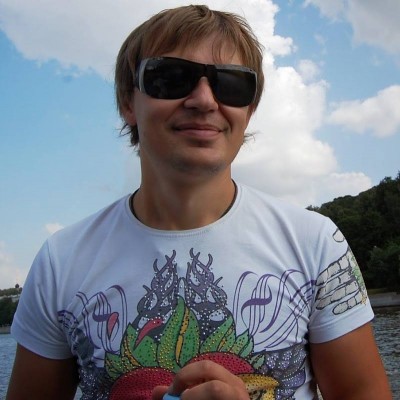Aleksandr Makarenko: Digital Quartermaster for Ukraine’s Army
by Global Voices / February 15, 2014 / No comments
This article is part of an extensive RuNet Echo study of Russian-language blogosphere in Eastern Ukraine. Explore the complete interview series on the Eastern Ukraine Unfiltered page.
It’s no secret that Ukraine’s armed forces have been woefully unsupported by the state for the entirety of Ukraine’s post-Soviet history. Hamstrung by almost farcical levels of corruption and underfunding, the army was caught off guard, first by Russia’s annexation of Crimea, then by the uprising in Donetsk and Luhansk regions. While Ukraine was able to mobilize troops by reinstating the draft, and allowing the formation of irregular volunteer paramilitary units like the Donbass Battalion, many fighters have complained about a lack of suitable equipment, warm clothing and body armor.
To compensate for this failing, the Ukrainian army and pro-Kyiv forces have relied heavily on support from private citizens. Some of this comes in the form of oligarchical backing, from figures like Ihor Kolomoisky, but ordinary Ukrainians have also stepped in, some donating money and resources, and others coordinating the fundraising.
One such Ukrainian is Aleksandr Makarenko, a 32-year-old from Kharkiv. Makarenko has over 27,000 followers on Twitter, where he tweets under the name “Хуевый Харьков”, Russian for “Shitty Kharkov”, part of a network of pro-Ukrainian “shitty cities.” He is also active on Facebook where he has 1,800 followers and over 3,400 friends.
Makarenko uses his social media clout to raise money and supplies for Ukrainian fighters. He estimates that he’s raised over one million hryvnias (approximately $75,000) for Ukraine’s armed forces. Makarenko’s provisions range from the banal (cigarettes, tea, sugar, and warm clothing are always in demand) to the fantastical (quadcopter drones are apparently much in demand and Makarenko recently provided two DIY armored personnel carriers to the volunteer-staffed Aidar Battalion).
RuNet Echo spoke to Makarenko and asked him how he came to be a volunteer quartermaster to the Ukrainian army.
I started out myself, I took cigarettes to the soldiers who were guarding the Regional Government Administration [building]. Then I wrote about it on Twitter and people sent me money and asked to buy some for them as well. Well, then it all took off.
Makarenko organises provisions out of a sense of duty, but also a sense of regret.
I wasn’t on the Maidan in winter. I felt that I should have been there. I started providing aid to soldiers because I felt guilty that I hadn’t been on the Maidan.
Makarenko often publishes critical posts about the Ukrainian government’s failure to provide for its soldiers. In one such post he writes:
But what really is the function of the Ukrainian government? The question occasionally pops into my head. And I can’t answer it. In theory, a government is an organisation of political authority, possessing sovereignty, the apparatus of governance and coercion and the provision of a legal order on a given territory.
The apparatus of coercion is the army. What does a state do for its own army? Lets look not at an abstract state, but at our native Ukraine. Everything is incredibly depressing. The fighters are given weapons from the middle of the 20th century, armor from the same period, which also breaks constantly and… and that’s it really.
When RuNet echo asked Makarenko what he thought the Ukrainian government should do to improve the situation for its military personnel, he was blunt: “Stop stealing,” he replied laconically. Makarenko maintains the government diverts funds meant for the army “constantly.”
Like many of the activists interviewed in this series, Makarenko has been radicalised to a large extent by the conflict. Asked if he had any messages for readers in the West, Makarenko replied scathingly:
I would like people in Europe to distinguish between Russians and Ukrainians. We’re completely different. But they mix us up. We want to get into Europe, we want to go forward. Russians just want to drink vodka.
Written by Daniel Alan Kennedy
This article was originally published by Global Voices on October 29, 2014.





